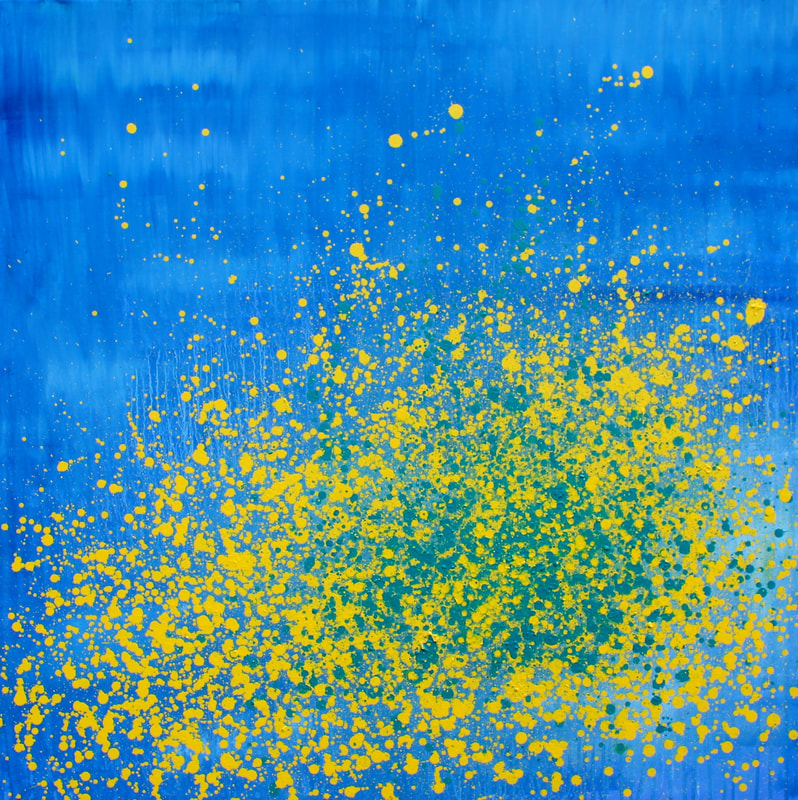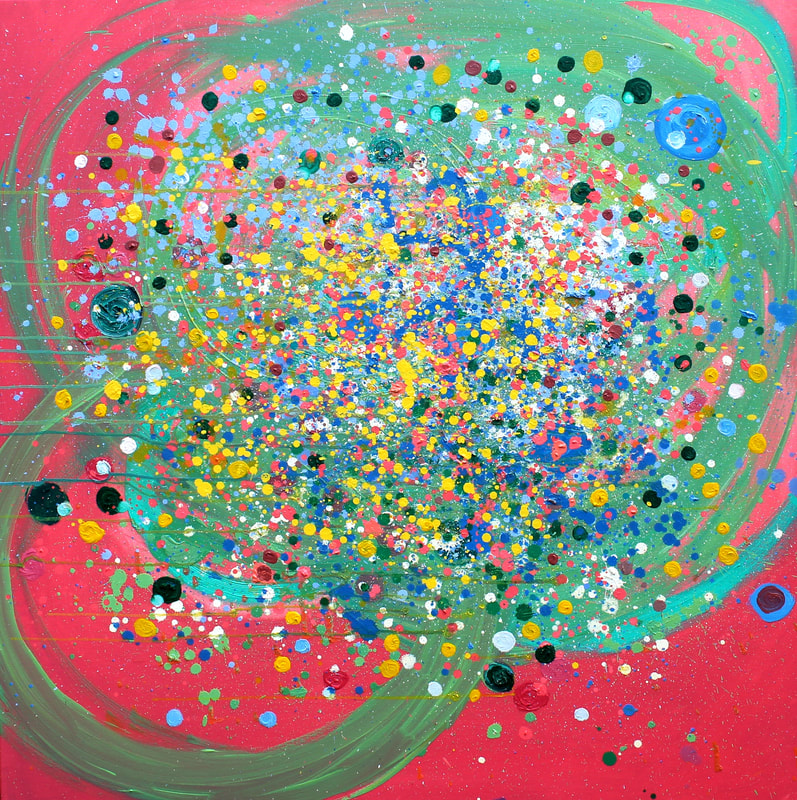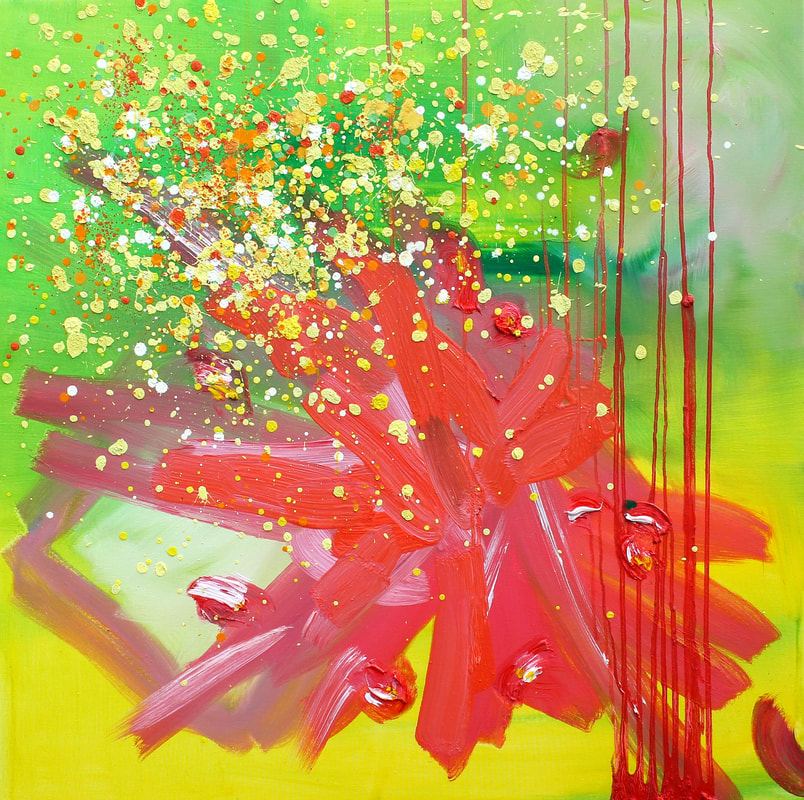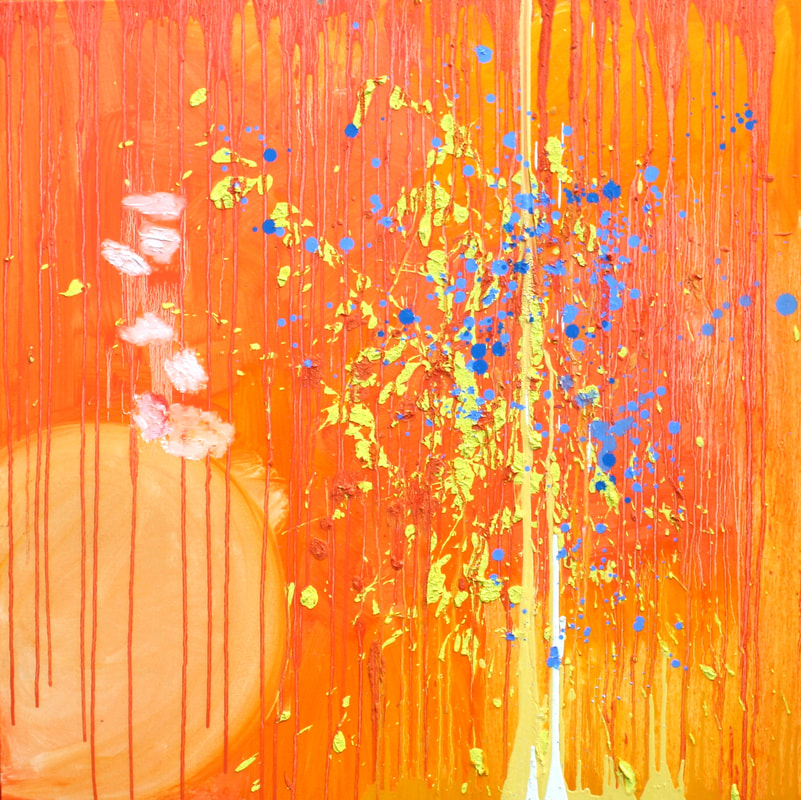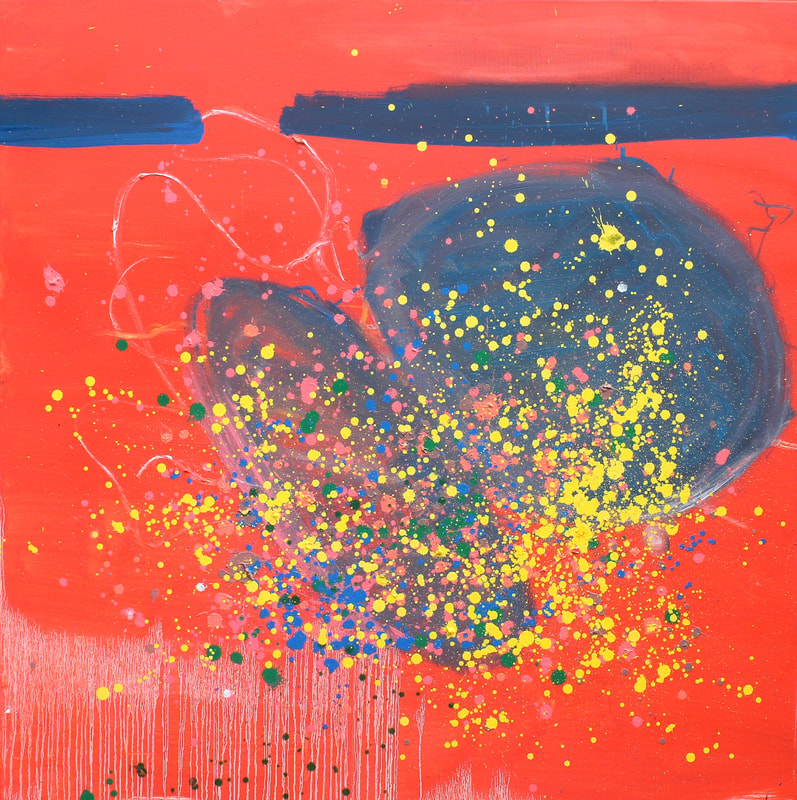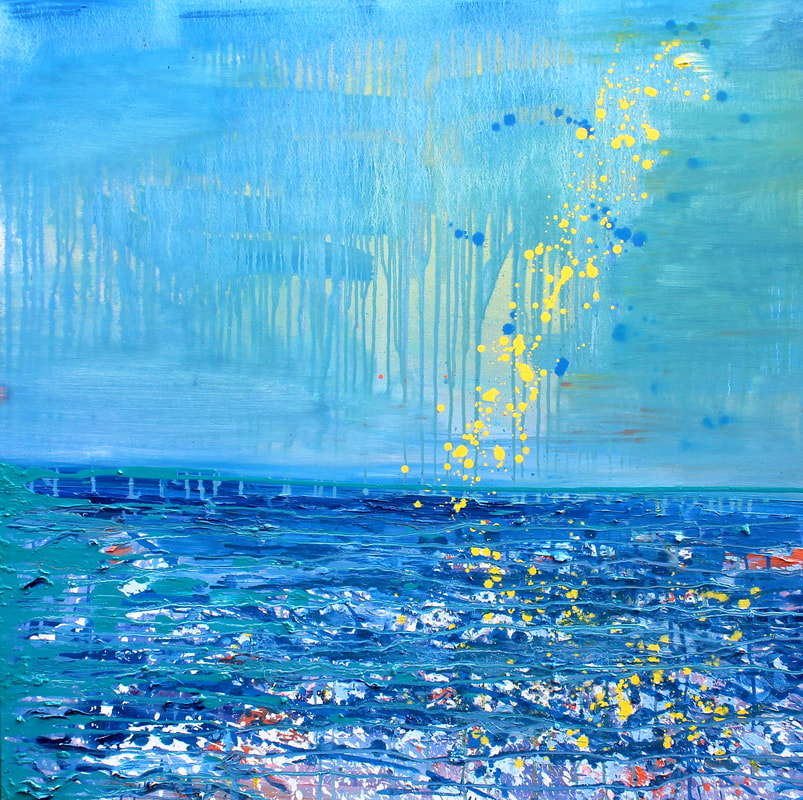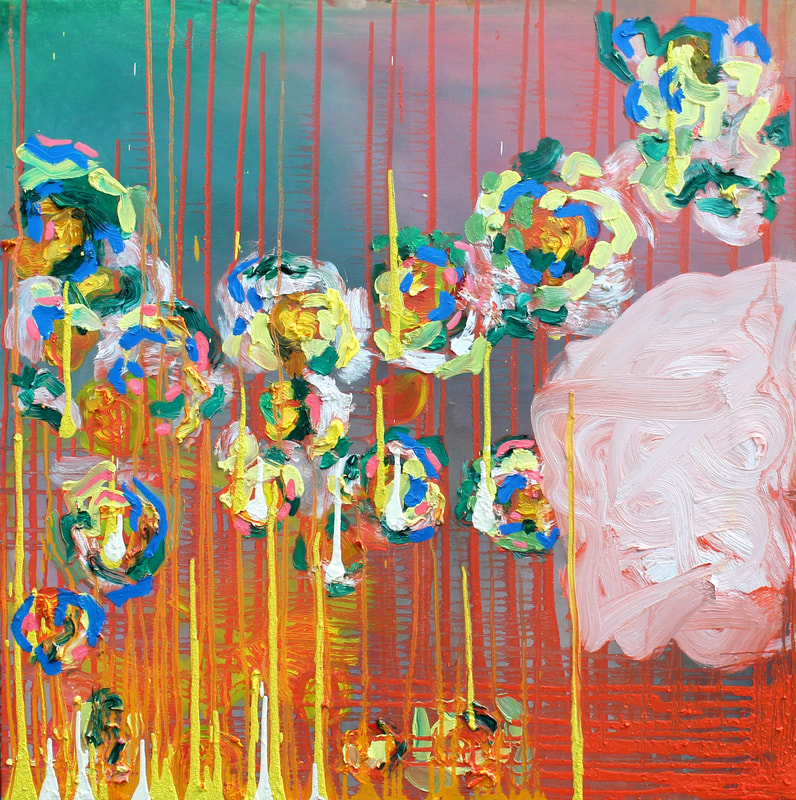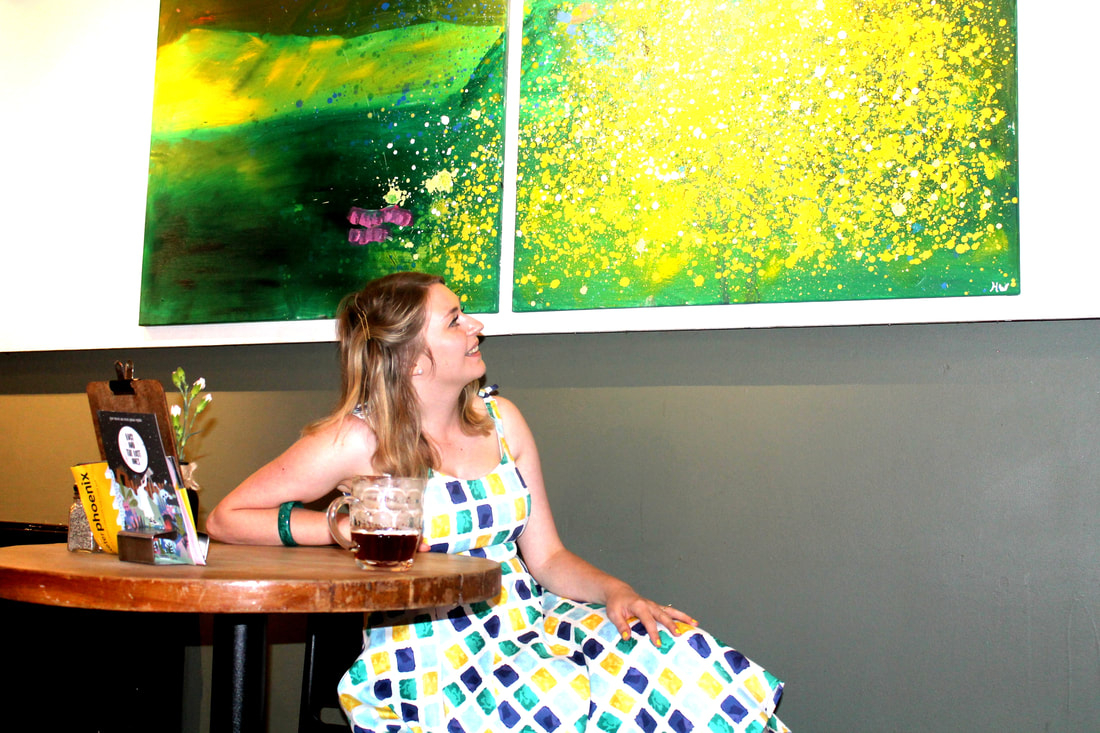Notice what you notice...
An Exhibition of paintings in 2017 shown at Exeter phoenix arts centre
Notice What You Notice’ 2017
Hannah Willson
Paint is my instrument, the brush an extension of my body.
My paintings are physical responses to a world of sensory information.
The paintings evolved without force or premeditation but through intuitive mark making and colour creating immersive experiences. This improvisational behaviour is integral to my paintings.
Gesamtkunstwerk (synthesis of the arts) is a recurring theme in my work. My senses are continually making links between sound, taste, feeling, smell and sight. This all subconsciously informs the painting.
Having graduated from Falmouth School of Art in 2014, I recently went on a course with Insider Art called, 'Art in Mental Health - a Foundation in Art Therapy.' Within this course the notion of 'Notice What You Notice' was introduced and began to inform my practice. It is important to know that noticing and 'notice what you notice' are different. If we can develop the capacity to notice what we notice it can bring a different level of observation that participates in the work. This is a small step away from being submersed in our thoughts and feelings, giving the opportunity to Notice that You Notice.
Hannah Willson
Paint is my instrument, the brush an extension of my body.
My paintings are physical responses to a world of sensory information.
The paintings evolved without force or premeditation but through intuitive mark making and colour creating immersive experiences. This improvisational behaviour is integral to my paintings.
Gesamtkunstwerk (synthesis of the arts) is a recurring theme in my work. My senses are continually making links between sound, taste, feeling, smell and sight. This all subconsciously informs the painting.
Having graduated from Falmouth School of Art in 2014, I recently went on a course with Insider Art called, 'Art in Mental Health - a Foundation in Art Therapy.' Within this course the notion of 'Notice What You Notice' was introduced and began to inform my practice. It is important to know that noticing and 'notice what you notice' are different. If we can develop the capacity to notice what we notice it can bring a different level of observation that participates in the work. This is a small step away from being submersed in our thoughts and feelings, giving the opportunity to Notice that You Notice.
